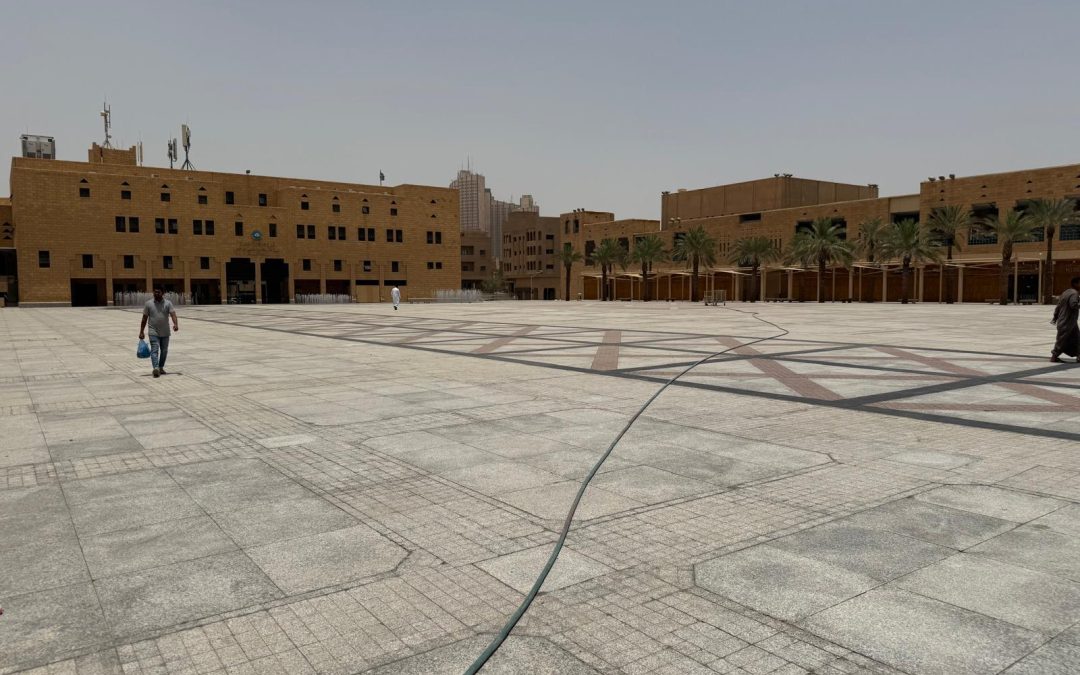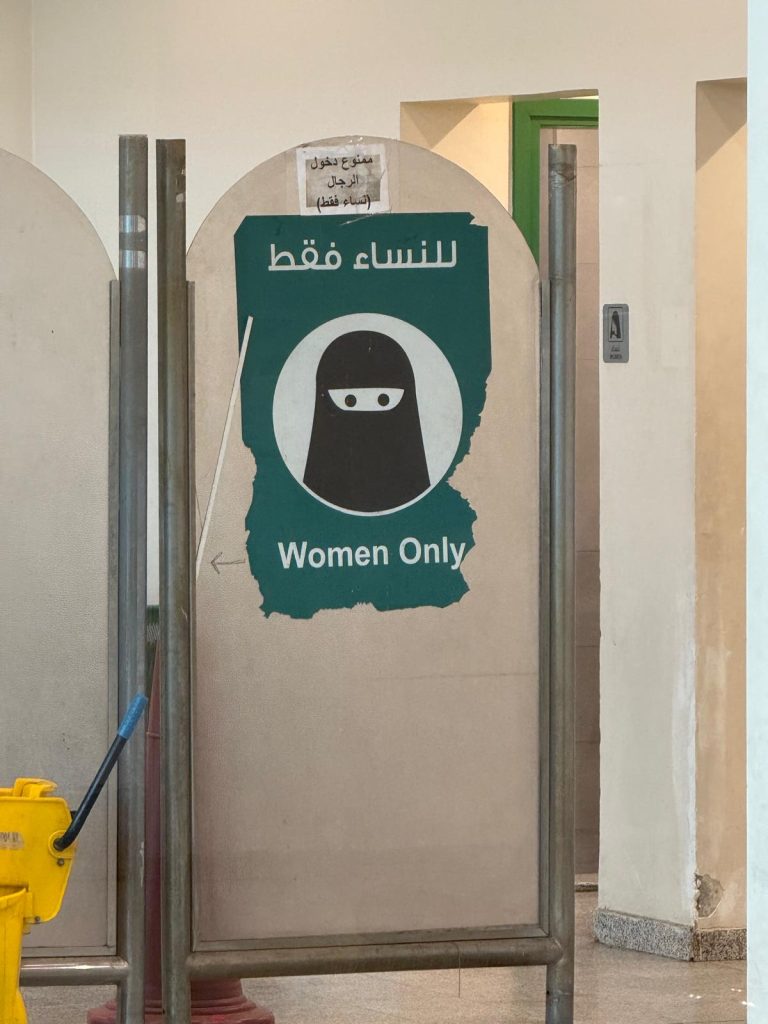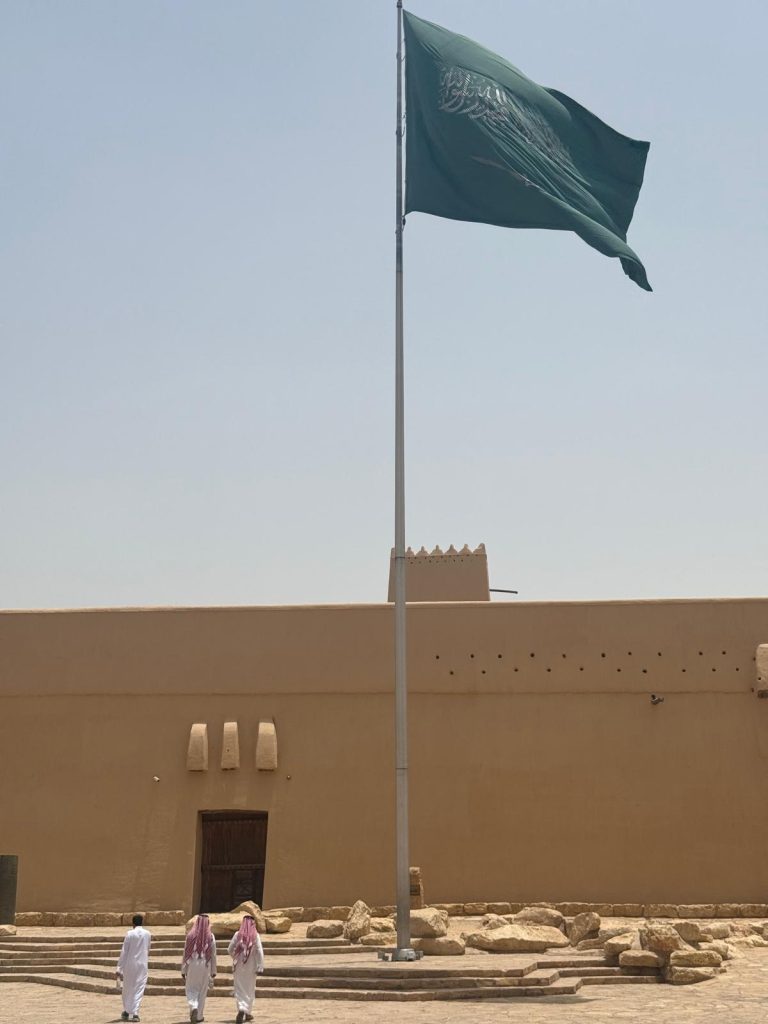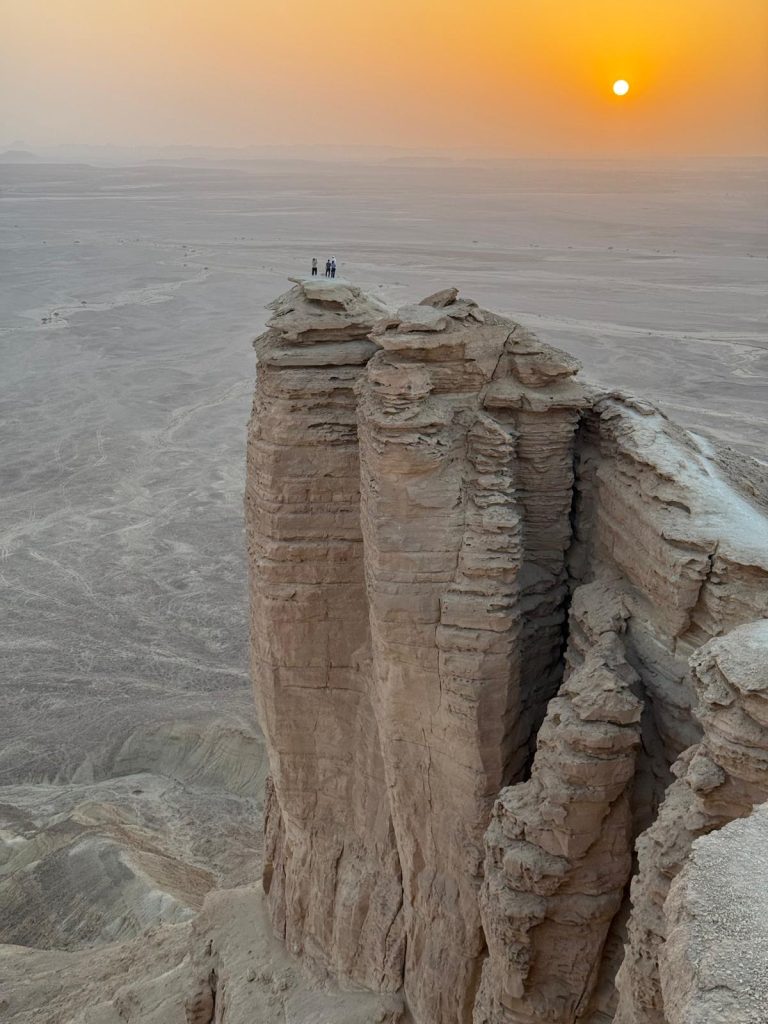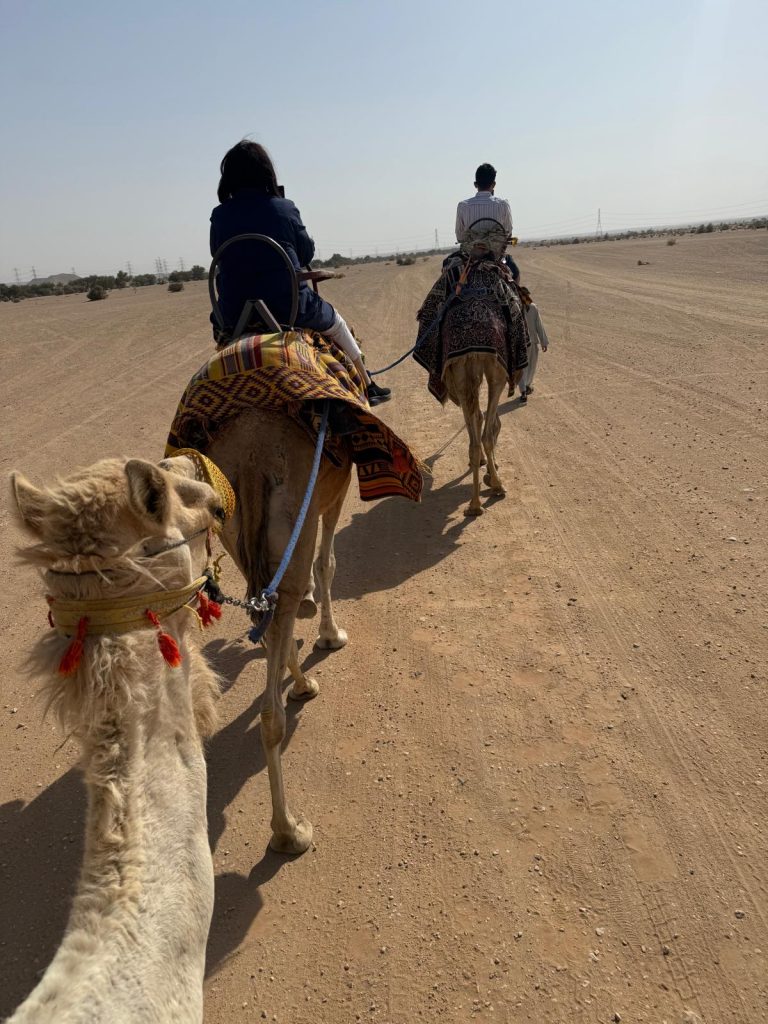The Riyadh sun was brutal. It pressed down with a weight that shimmered off the asphalt, casting long mirages across the empty boulevards. I ducked into a narrow alley beside Justice Square, drawn by a sliver of shade and the hope of respite. As I followed the lane, the noise of traffic faded, replaced by the calming silence of a large empty public square and the hush of stillness. I stepped into a quiet courtyard—and froze.
Metal barricades surrounded the square, forming a subtle perimeter I hadn’t noticed. Somehow, I’d wandered past the security cordon, directly into the heart of the most closely watched area in the city. Justice Square. Infamous for public executions under Sharia law.
There was no one immediately around. Just an empty bench under a scraggly acacia tree. I sat down and opened my phone to write a post—something on Sharia law, justice, and the illusion of order. But as I read more about the Saudi legal system, unease crept in. It wasn’t just about laws—it was about interpretation. About power. I realised I could be imprisoned not for what I did, but for how someone felt about it.
I remembered the post I’d made a few days earlier—about the rubbish choking the UNESCO sites in Jeddah. Not cruel. Just honest. Yet in a place where image is curated at the highest levels, perhaps even that could be seen as dissent. I deleted it. First time ever.
Just as I stood to leave, a tall man in a tight white dishdasha emerged from the edge of the square. He moved with intent. Solid. Six-foot-three at least, with shoulders that pulled at the seams of his robe. He reminded me of Jaws from the old Bond films. His first words were curt:
“Hello. Who are you? Where did you come from?”
I gave my usual friendly traveller response. But he didn’t smile. He motioned for me to follow.
“Come. I’ll buy you coffee.”
We ended up in a tiny café nearby. He told me he’d studied in the US. Fluent English, though he kept repeating, “To be honest…” A red flag I’ve come to trust around the world. The more someone insists they’re being honest, the more I lean in.
He asked about my trip. Where I’d been. Where I was going. I asked his name. He smiled but didn’t answer. “Ministry,” he said vaguely, when I asked what he did.
I realised then: this wasn’t a chance encounter. Someone had seen me, alone in the square, and sent this man. As we walked back through the car park, I watched how every soldier we passed looked at him. Avoided his eyes, but with recognition. He was known. Important. I felt the leash.
He offered to drive me to the Edge of the World—the towering cliffs that drop off into endless desert west of Riyadh—but then claimed he couldn’t find his government car. We wandered car parks, and I started falling behind on time. He eventually wished me well. I declined the ride.
The contrast hit me later that day. After shaking him off, I rode out to the cliffs—jagged and ancient, bathed in the golden fire of a desert sunset. On the way, we passed wild contradictions: colossal botanical domes rising from barren earth, American contractors racing to erect a futuristic Riyadh, and pilgrims walking through garbage-filled alleys to pray.
One side glittered. The other rotted. One was curated for the world. The other, forgotten by it.
That afternoon, before chasing the golden horizon at the Edge of the World, I ducked into a crack in the Earth no wider than a car door. It dropped steeply into the limestone—cool, dark, and silent except for the faint flutter of bat wings. The locals called it the Bat Cave. But more than just a hideout for creatures of the night, it felt like a shelter for souls who sought escape from the sun-scorched spectacle above. Down there, out of the heat and far from the towering artificial domes and mega-projects, it was easy to imagine people living in quiet resistance—making homes, raising children, surviving in the shadows for thousands of years. The air was thick with stories unspoken. I felt safe down there. Not because of walls or rules—but because it was real.
Above, Riyadh stretched endlessly, shimmering with ambition—vertical gardens in the desert, movie studios rising from dunes, oil-funded dreams rewriting what nature had never intended. But the Bat Cave whispered something different. A reminder that beneath the polished surfaces, a parallel world lives on. One born of dust and struggle, community and survival. Saudi Arabia is a land of dazzling contrasts: of extravagant construction and quiet resistance, of curated futures and ancient truths. One dazzles. The other endures.
“He who loses the trail, finds the stars.” — Bedouin Proverb, Arabian Desert
Reflection: The desert teaches humility. In its emptiness, we find what truly matters—not in what is built, but in what endures when everything else disappears.
| Action: When dazzled by spectacle, look underneath. True understanding comes not from what’s presented, but from what’s hidden. Seek out voices in the shadows—there’s deeper wisdom there than on any billboard. |

